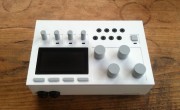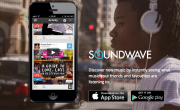Teenagers or early 20-somethings might say that upon hearing “NPR” come up in conversation, thoughts of people much older than them with jump to the front of their minds; as well as thoughts of content that cannot possibly be relevant to anyone their own age. Well, if there was ever a time to ditch the demographic stereotypes surrounding NPR and its programming, now is it. While NPR offers coverage on an array of different content that breaches everything from international politics to science, sports, and art, (the first of which might not be at the top of a teen’s priority list), NPR Music, dedicated exclusively to just that, has moved forward leaps and bounds in their quest to widen appeal toward people of all ages and interests when it comes to which artists and genres are featured.
Nearly everything about NPR Music has stepped into the 21st century. Its availability spans terrestrial radio, digital streaming via the official NPR Music website, an app exclusively for NPR music’s content and of course, accounts on many of the major social media platforms, including: Facebook, Twitter, Tumblr, Instagram.
There are 11 specific programs hosted through NPR Music, individual pages for seven genres (Rock, Jazz, Classical, Hip-Hop / R&B, Folk, World and Electronic / Dance) and four regularly updated blogs that often provide perspective that is much more raw than that of a typical Top 40 radio station.
When it comes specifically to new music discovery, NPR Music is undeniably a top dog in the business. Their “Tiny Desk Concerts” and “First Listen” programs are exceptionally good in this matter for two very strong reasons:
1) The stronger feeling of artist-to-fan intimacy associated with Tiny Desks’ exclusive video sets, which are shot right in the NPR Music office and not more than a step’s length away from the artists themselves.
2) The albums selected for advanced listening are often times highly buzz/blog worthy and the availability of the streams usually precedes the public release date by several days –many times even longer than a full week and are accompanied by an overall review to boot.
The NPR Music team is poised to become an even more frequented destination for both new artists on the rise and established artists with new records to promote. (See also: this piece from the Wall Street Journal on the current status of NPR vis-à-vis music). The perusal of NPR Music’s webpages and listening to their programs and podcasts means exposure to both fresh and familiar names, epitomizing music discovery.
The inclusion of deeply personal and non-predictable artist interview content could solidify NPR Music even more. Not surprisingly, the staff knows this too, as their World Cafe series hears artists offering lesser-gossiped, more fleshed out insight to things like the inspiration behind songs, tabloid rumors and other Easter eggs fans might not hear though other discovery outlets.
Amy Schriefer, Senior Product Manager with NPR Music, spoke with me about her thoughts on the importance of strong radio programming, the nuts and bolts behind NPR Music’s selections, and how the brand plans to continue changing and refreshing the music discovery scene, as well as itself.
SoundCtrl: NPR as an organization and iconic brand, has been around since the 1970s but more recently has gained a lot of recognition and popularity in mainstream media -particularly amid online communications. Clearly we can see you’re doing everything possible to expand your audience and demographics. What would you say is the one thing you knew the NPR Music branch needed to do in order for this change to effectively happen as it has?
Amy: To me, public radio has always worked to expand audience and demographics, to varying degrees of success. Our member stations rely on listener support, so their very model is one of outreach and engagement. When NPR Music formed in 2005, our goal was to aggregate the best public radio music programming across the system and create a powerful platform for music discovery and discussion. Bringing together all of the amazing programs, stories, interviews, videos, and digital streams demonstrates the scope of public radio music, but also our collective reach.
SoundCtrl: Since NPR Music is now often referred to as a top-level source for finding music, how does the NPR Music team decide on the chosen featured music or artists? Specific blogs? Online buzz? Employee suggestions? All the above?
Amy: We work with the top DJs in public radio to identify new music. Our staff includes critics, reporters, and hosts across genres and we also work with the arts and culture reporters on the NPR news magazines. Like any music fan, we’re constantly connected our favorite music sources, looking for new music, but also combing the archives for the music that came before and that shaped these new sounds and searching for the music that helps to tell the story of cultural moments, past and present.
SoundCtrl: Even though NPR Music is trying to appeal to younger listeners, do you feel there is something still inherently more “adult” about things like the platform’s artist interview content, due to the fact that questions and scenarios addressed often go far beyond the surface layer of shocker headlines and the circulating gossip topic(s)?
Amy: NPR strives to be a trusted source for story-telling and analysis. I don’t think there is anything inherently “adult” about that. I think music fans of any age seek more information and greater understanding.
SoundCtrl: Does NPR Music have any new promotions, strategies or programs in the works for the near future that we can anticipate?
Amy: We plan to continue to develop our story-telling tools, particularly using video and multi-media, and making sure our content works seamlessly across platforms–radio, digital, mobile, etc. The DC office also just moved to a new building, taking the Tiny Desk along with it, so look for a relaunch of our Tiny Desk Concert series in the near future.
Kira is an old school music nerd with a love for all things creative; always searching for music’s common ground. She graduated with an M.A. in Performing Arts Administration from New York University. Drop her a tweet @shadowmelody1



![[Interview] With Their Stunning Crystallized Volcano, Krewella Hopes to Blow Fans’ Minds](http://www.soundctrl.com/blog/wp-content/uploads/2013/09/Identity_Set-180x110.jpg)


![[Interview] With Their Stunning Crystallized Volcano, Krewella Hopes to Blow Fans’ Minds](http://www.soundctrl.com/blog/wp-content/uploads/2013/09/Identity_Set-50x50.jpg)








Comments are closed.